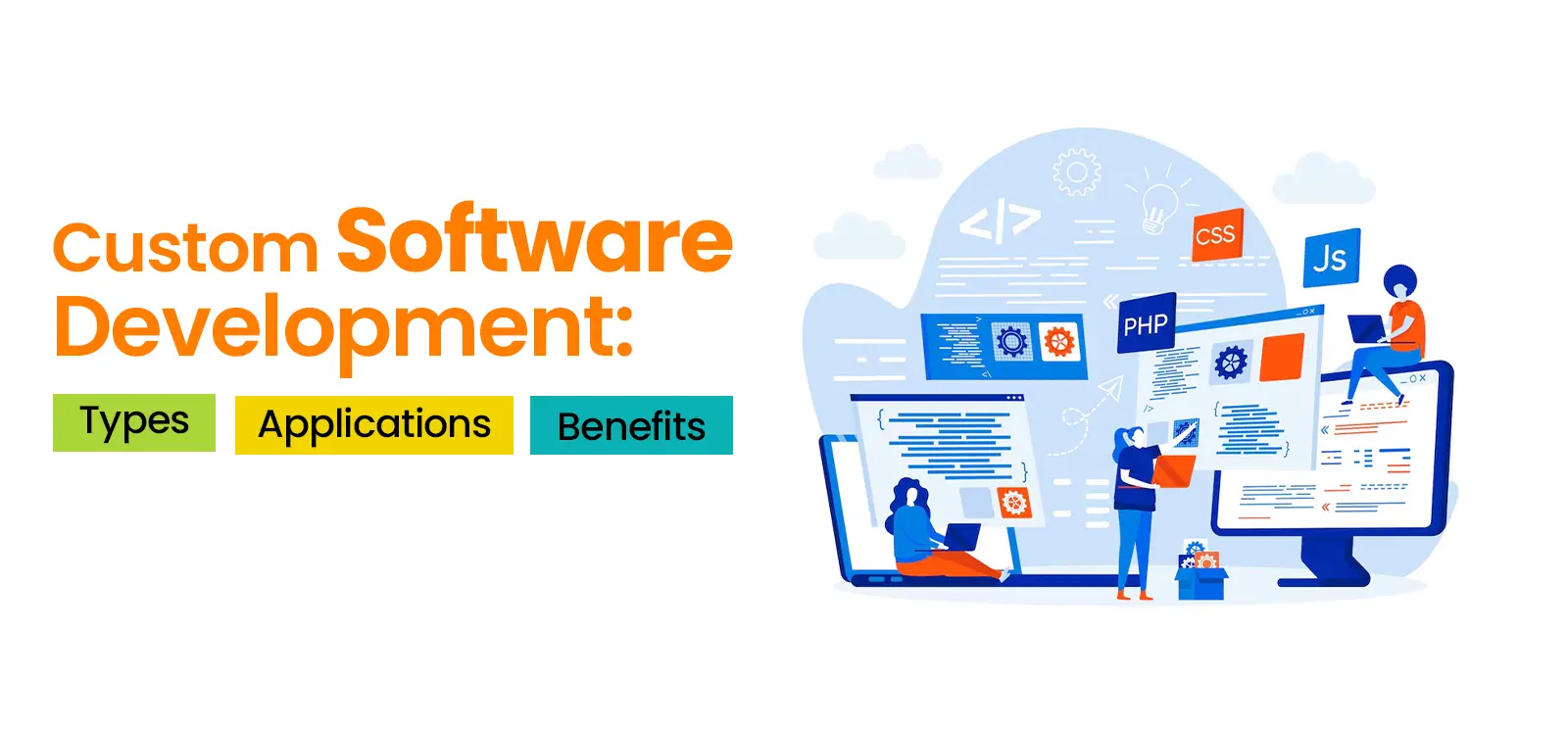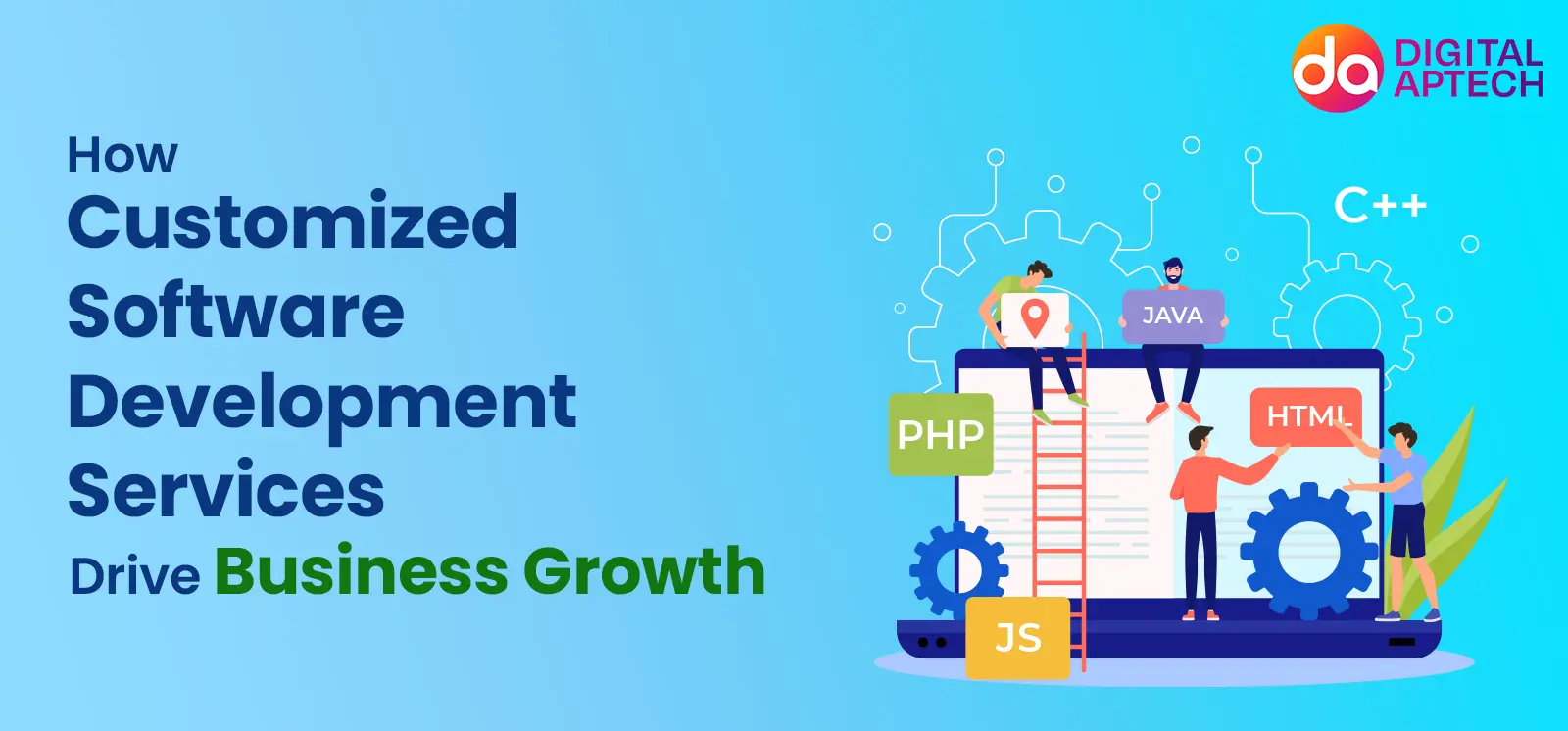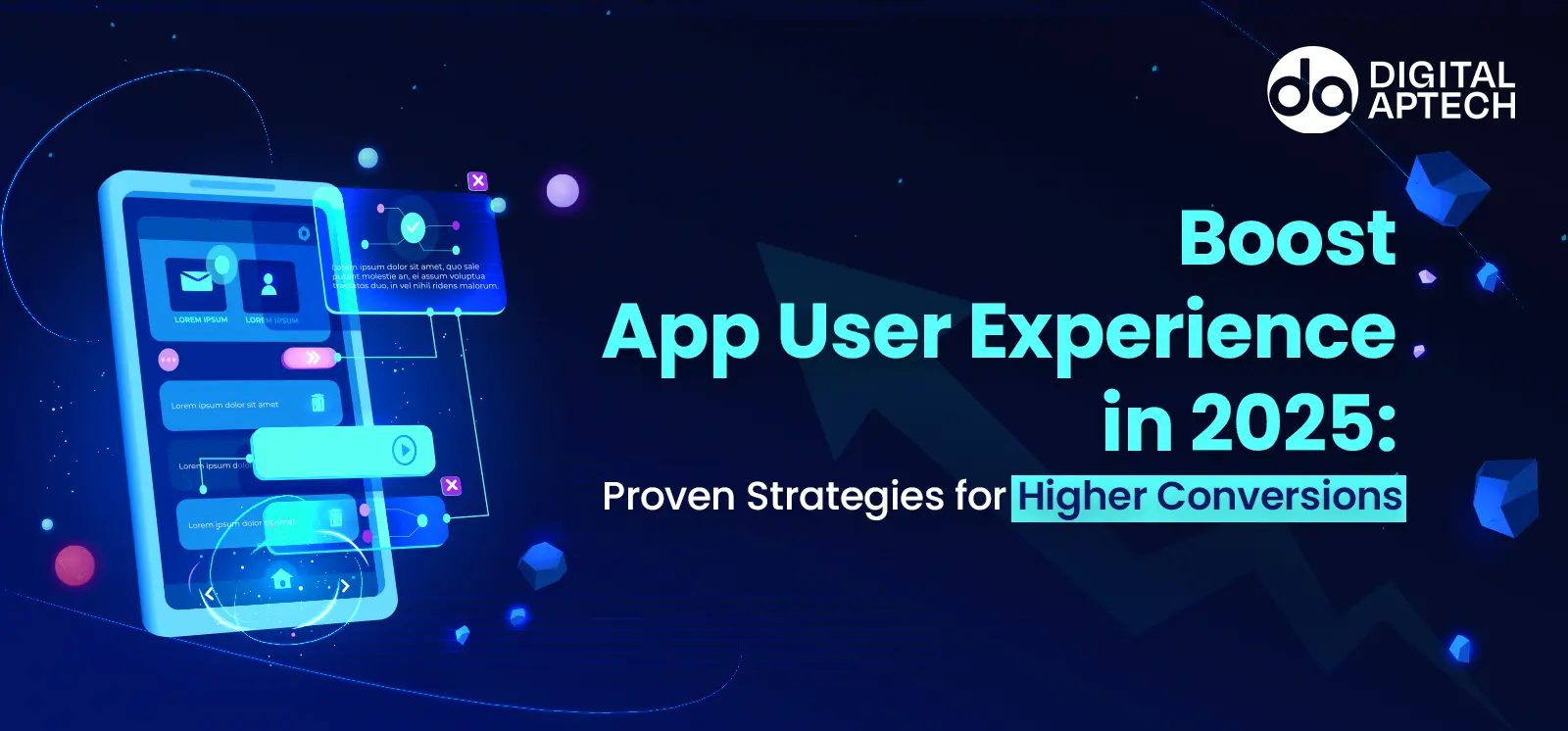Businesses across the globe rely heavily on technical solutions to boost productivity. It also streamline processes and keep up with the ever-evolving market. Even with off the shelf solutions readily available, brands often choose custom solutions. This ensure they derive optimum precision and effectiveness from their solutions. With this, custom software development solutions are now extremely popular.
The software development market evolving and with Statista projecting revenue has been increasing, hitting USD 179.90 billion globally. The apprehended growth rate of CAGR 2024 to 2028 is at a solid 6.87%. The revenue generation is likely to touch USD 234.70 billion by 2028. Brands understand the essence of custom solutions in being relevant. Custom applications allow brands to its consumers’ needs by offering flexibility. It also optimizes digital infrastructure, boosting efficiency and offering technical growth.
Custom software solutions development is a combination of elements like planning, design, development and deployment solutions. These are uniquely tailored to meet a certain set of functionalities. To cite an example, a healthcare app meets the needs of users like patients and medical professionals. A banking app is built differently to serve the purpose of the bank and its customers. Custom softwares usually also vary based on industries and sectors.
Custom softwares are often used for streamlining operations. They offer the business an edge over its competitors and also to improve its customer experience. It helps enable businesses to identify gaps and also predict future trends.
In this article, we will look into the reasons why Custom software development is an integral part of current businesses. We also look into the advantages and the impact it has cast across various industrial sectors.
Define custom software
Wondering what is custom software? Custom software are programs or software applications. They cater to the requirement of a specific business. These software come from scratch usually by either a professional software development company.
Regular off the shelf software (OTS) are designed to cater generic needs. Custom software development takes a customized approach. This way, businesses can ensure the software aligns with the goals and workings of the organization.
How to define custom software development?
Custom application development is a all-embracing process that identifies the requirements of your business and build around it. These requirements are curated to meet the requirement of the business and also be integrated into the current framework. This process begins with the initial planning but goes well beyond development, implementation with ongoing scaling with a larger goal to boost revenue as the end goal.
Customization is the primary objective of custom software development. So each solution is built based on factors like user base, process and the serving industry.
Whether you plan on developing a content management system for backend work or building an interactive mobile app, user specific needs are primary. This allows the solution to blend into the contemporary functionings of the business while boosting efficiency and reaching goals faster.
Custom software VS. off-the-shelf software
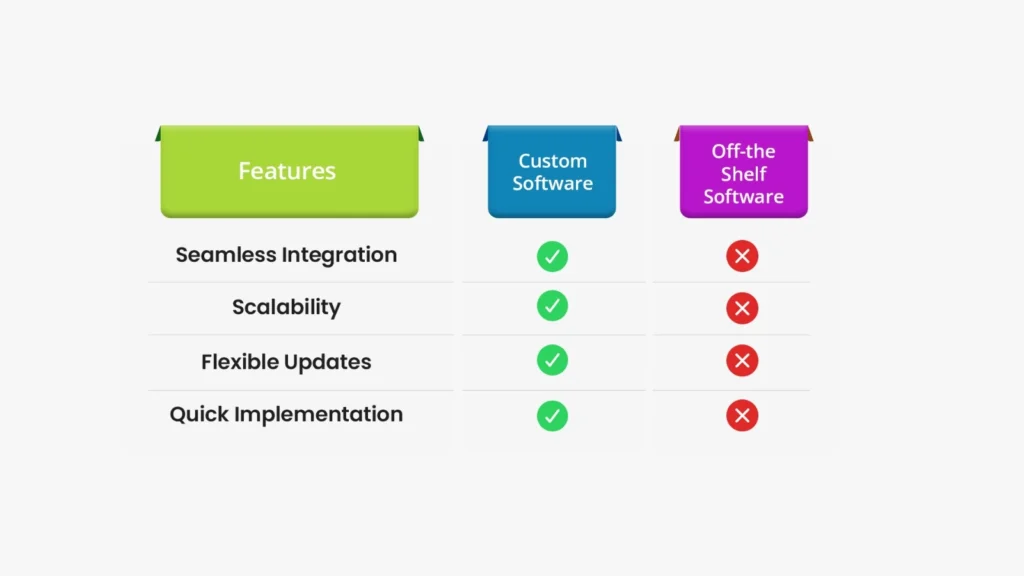
While seeking for technical solutions in the market, the primary thought that comes to one’s mind is whether to build a solution from scratch or to buy it off the shelf. Where off the shelf software is ready to be put to use, custom software is designed to cater to specific requirements. These two differ in terms of performance, functionality and utility. Let us look into a few key differences between the two:
1. Custom software purpose
- Customized application software is built keeping a specific business into consideration, therefore offering a one of a kind solution which meets the needs and requirements of a business.
- Off the shelf software is built for a larger audience solving generic issues and it may not be able to offer 100% solutions to specific businesses.
2. Flexibility and scalability
- Custom software is always built with the possibility of scalability. This allows the brand to make changes to the software with growth.
- Off the shelf solutions do not cater to scalability and need additional efforts for the same. The transition too may also not be as seamless
3. Ease of Integration
- With custom software, integration with the contemporary system is extremely smooth, causing no operational interruption.
- As mentioned, off the shelf software needs additional efforts, along with resources and the transitions are not as seamless.
4. Investment:
- Investment is higher for custom software development. The cost tends to run high due to customization and adaptability.
- Off the shelf software is cheaper initially. However, as your brand grows and you need to upgrade, costs start running high. Custom development is the best solution.
5. Turnaround time:
- Since custom web software development solutions are built from scratch with a unique fit, they tend to take longer and the timeline is based on the requirement.
- Off the shelf software is ready for implementation. The only time required is for installation and configuration.
6 . Dependency on the software providing company:
- Custom application development services allow businesses to make easy modifications so the dependency on software providing company is low.
- In case of off the shelf, you have to depend on software providing company to roll out with new features and updates.
7. Competitive edge:
- With customised features the custom software offers, your business can have a competitive edge over the others in the industry
- Since off the shelf software is available to all, you do not have an advantage over others.
So it all boils down to factors like budget, timeline and a businesses long term goal when choosing between custom and off the shelf solutions.
Make your business stand out with custom solutions
You must be wondering why does a platform need to be customisable? With custom software you can unleash rapid growth tailored specifically for your business with tailored software solutions. Collaborate with Digital Aptech, a globally renowned custom software development company.
Kinds of custom software solutions
Custom software solutions are a crucial must have for businesses who want to stay ahead of the curve and be industry leaders. Custom software solutions are of various types, the popular ones being mobile apps, enterprise solutions, industry specific solutions etc. Each of these solution types have their own set of unique advantages and purposes.
- Enterprise Solutions: Enterprise solutions are designed to offer support to larger and scalable organizations. Some popular enterprise solutions include Customer Relationship Management (CRM), Supply Chain Management (SCM), Enterprise Resource Planning (ERP) and Business Intelligence systems (BI).
- Industry-Oriented: Custom software designed specifically to cater to an industry such as finance, retail, healthcare, or hospitality. These software have a set of features uniquely designed to match the industry requirements and compliance standards.
- Customer facing applications: These solutions like web portals, self service platforms, online booking systems, mobile apps etc are designed to offer an improved customer experience and ensure a prolonged engagement.
- Business process automation (BPA): These software are created to aid a specific business. They are targeted towards reducing redundant manual tasks, boosting productivity and efficiency. Some popular BPA’s include workflow automation, project management software and document management systems.
- Analytics and data management tools: These software solutions are data centric. They collect, analyze and visualize data to generate insights and aid the decision making process. Popular tools in this category are data warehousing tools, Business Intelligence tools and custom reporting systems.
- E-commerce platforms: Custom online platforms can help e-commerce businesses effectively manage payment processing, inventory management, operations, manage online storefront, order fulfillment, and customer relationship management platforms.
- Content Management system: Content management systems allow brands to manage, create and publish content on portals like blogs, online stores and websites. These solutions have unique features like content distribution, authoring and publishing.
- Internal software systems: These solutions focus on smoothening the internal workflow within a team. Popular tools include inventory management software, human resource management system, employee scheduling tools and collaboration platforms.
- Integration and middleware solutions: Middleware solutions help integrate applications, database, disparate systems smoothly. These software help with automating workflow, streamline data exchange and more.
- Compliance elated solutions: Customs software is excellent for meeting industry specific regulations and standards. Tools for audit tracking, reporting platforms and compliance management systems reduce chances for errors and manual intervention.
The ones stated above fall under traditional categories. However with the evolving market, newer categories have made immense impact on businesses and are worth mentioning:
- Blockchain-embedded solutions: Blockchain embedded software solutions development offer a decentralized option backed by security and transparency. These solutions work exceptionally well in the fiscal and supply chain related sectors. Blockchain embedded solutions can also boost efficiency and foster trust since you get robust security.
- AI based solutions: AI based solutions are a rage in the market. They can help with various complex tasks offering predictions helping with crucial decision making processes. Popular solutions include virtual assistants, AI chatbots, personalized recommendation systems offering not only operational efficiency but also a better customer experience.
So, for businesses who want to optimize their operations, resolve unique challenges, and stay ahead of the curve, custom web software development are a must have. Custom software development is catering various business needs via solutions like mobile apps, industry based solutions, AI based solutions and more.
Ways in which custom software solutions are implemented
Now we will see the various ways in which businesses are implementing custom software development throughout major industries. Custom solutions are empowering brands to optimize their workflow, and improve innovation and overall customer engagement.
Finance
Tailor-made software development solutions such as fintech platforms, risk mitigation pltaforms, trading apps and investment platforms are major examples to look at. Such platforms help financial institutions offer a personalized customer experience, helping their users be more aware of their money.
Retail
In the retail sector ,custom software development has made considerable impact. Speaking of e-commerce platforms, features like inventory management, personalized shopping experience, customer relationship management, Point of sale systems have helped streamline the process. Such customized solutions have been a game changer for retail brand globally helping to boost operations and customer experience.
Healthcare
The healthcare sector has witnessed massive transformation when it comes to managing patients along with crucial patient data with data analytics tools and new-age apps. Such features help with improving caregiving, improving processes, adhering to laws like HIPAA, improving access to healthcare and more.
Manufacturing
With custom software development, production and manufacturing can be streamlined. With tools like supply chain management, production scheduling, quality control, failure detection and prevention, production becomes efficient with reduced wastage. Manufacturers get to reduce downtime, improve and standardize quality, thereby getting better ROI.
Education
Learning management system (LMS) is an extremely popular custom software development solution in the education sector. Such solutions can assist with course material delivery, interactive app interfaces, academic performance traceability, administrative efficiency and more.
With LMS, students get a remote,self paced, learning environment, and also enable educators to track pupil performance.
Real Estate
Custom software development can be implemented in the real estate sector in various ways. It helps with CRM tools for efficient client management, virtual tours, property management systems, market analysis, investment decision making and more. With these solutions, real estate businesses can easily improve client engagement, boost property marketing and make wise investment calls.
Logistics
With custom web software development services like fleet management, warehouse management system, inventory tracing, route optimization, logistics analytics platforms and performance improvement, custom software development integration in the logistics sector is crucial.
Logistics businesses can leverage these solutions for efficiency, cost-optimization and ROI.
Travel and tourism
Online travel booking is a great example of how travel and tourism are experiencing a massive shift with custom solutions. Online platforms in this industry are able to conduct travel planning, customer support and get market insights easily.
E-commerce
Custom software development can help your e-commerce business with several features. Popular ones include order management, fulfillment systems, analytics tools etc. They will help you make your business smoother, boost customer engagement and also encourage sales.
This further leads to users having a better travelling experience, get better services and take wiser decisions.
Improve your business with custom software development
Grow faster with custom software solutions designed keeping your requirements in mind. Partner with Digital Aptech, a globally trusted custom software development company.
How custom software can boost your business’s department-wise efficiency
With custom software development, you can address the gaps in each department of your organization and come up with solutions for the same. Here is how you too can achieve this:
Finance department
With custom software implemented in the finance department, expense tracking, invoicing, and budget can be done with ease. It also eliminates the risk of manual errors.
- With your customized finance software, you can get real time insights. These insights are crucial for the finance department to take informed calls.
- A custom developed finance software can also enable seamless data transfer to other systems to aid the overall organizational management.
Sales and Marketing
With the changing market trends, custom software development has become an integral part of marketing and sales. With tailored solutions, businesses have improved communication, and streamline processes. Tools like Customer Relationship Management for efficient interactions, marketing automation tools, Content Management Systems, data analytics tools, Business Intelligence (BI) platforms can help nurture leads and bring in revenue.
Sales and marketing teams using custom software have improved workflow, streamline processes, boost productivity and improve efficiency. You can also gather and analyze data to help make informed decisions aiding business growth.
Human resources
The HR department can use custom software development to streamline various processes. These include recruitment, onboarding, employee engagement, performance management and others.
- You can curate a customized portal where you will find employee data, attendance, etc all in a single place. With this, you can reduce administrative burden and boost traceability.
- You can also choose to incorporate analytics and reporting to track employee performance and identify areas which need improvement.
Supply chain
You can use custom software to streamline procurement, manage inventory and boost supply chain visibility.
- With custom software, you can also improve association with partners and suppliers.
- It can help you track shipments efficiently, automate orders, reduce costs, optimize resources and much more.
Research and development (RnD)
RnD department primarily uses data analysis and project management tools.
- They help streamline the development process, manage research projects and share found knowledge.
- You can also integrate these solutions with other custom software solutions so the overall business is streamlined.
Customer Service
With custom software, you can improve customer service immensely by supporting various tasks.
You can automate repetitive tasks like ticket management and response generation. You can enable features that work best with your organization and customer support needs. This way, customer agents can handle enquiries faster and offer better resolution too.
With custom software development, you can offer improved customer experience. In fact the experience can be individually designed on the basis of a particular customer. You can also access analytics, history, and communication channels. With this, your customer agents can deliver a better experience to your clients, building a positive sentiment.
with custom software development, you can curate solutions to aid a specific department. With this, your overall process is efficient, collaborative and smooth with reduced manual intervention.
Benefits of custom software development for your business
You can optimize various aspects of your business with custom software development. With custom solutions, you can solve specific challenges. You can enhance customer experience, streamline processes easily. It also offers immense flexibility and efficiency in problem solving too. Let us now look into some statistics related to custom software development.
- As per a survey conducted by Software Advice, over 85% of businesses prefer custom software development for business growth.
- According to Gartner’s report, custom software development can generate over 15 times ROI, which is considerably higher than off the shelf solutions at 3 times ROI.
- SOLTECH states custom software development allows businesses achieve differentiation, enhance efficiency and foster innovation giving them a competitive advantage.
- A study by IBM says custom software development boosts customer satisfaction by 40%, reduces operational cost by 30% and increase revenue by 20%.
Custom software development has several advantages. They go beyond basic features, and offer unique solutions based on a specific business goal. We will now look into the benefits of custom solutions:
- Reduce manual intervention: Wth custom software, you can automate various processes, reducing manual intervention. This further reduces the time and efforts put into doing repetitive tasks. With automation, you can allow employees to focus on growth centric aspects of the business like strategizing and innovating.
- Meeting unique gaps in your business: The primary reason why brands choose custom software development is because of its customized solutions. In contrast to the off the shelf solutions, custom software development can be uniquely curated to meet the preferences, workflow and objectives of the business.
- Long term cost effective: Contrary to popular belief, custom software development, although seeming expensive initially, is more cost effective in the long run. With custom solutions, you can eliminate or reduce regular
- expenses like purchasing, licensing, upgrading solutions which may not even meet the required goals.
- Updating legacy systems: With custom softwares, you can keep upgrading legacy systems so you can stay relevant in the evolving market. You can easily add new features and technologies with minimal downtime and also stay relevant in the contemporary digital landscape.
- Improved control: With custom software, you control your software. You get to choose everything, right from the design to modifications and features. With such control, you are in sync with the changes needed and what needs to be done on priority. You do not get to make such alterations in off the shelf solutions.
- Premium security: You have enhanced security with custom solutions. You can save your platform from hackers compared to off the shelf solutions. Custom software has a unique design which is not easy to breach. You can also choose to add additional security measures like encryptions to further protect your platform.
- Ahead of competition: With a custom solution, you get to be ahead of your competitors. You can build unique solutions specific to their business. This plays a huge role and will help you in retaining customers.
Basically, with custom software development, you get a wide range of benefits. It helps you in improving operations, customer experience, security and more. When you implement custom solutions, your software has clear objectives aiding your growth. They help build businesses a path for success even in uncertain markets.
How does custom software development take place?
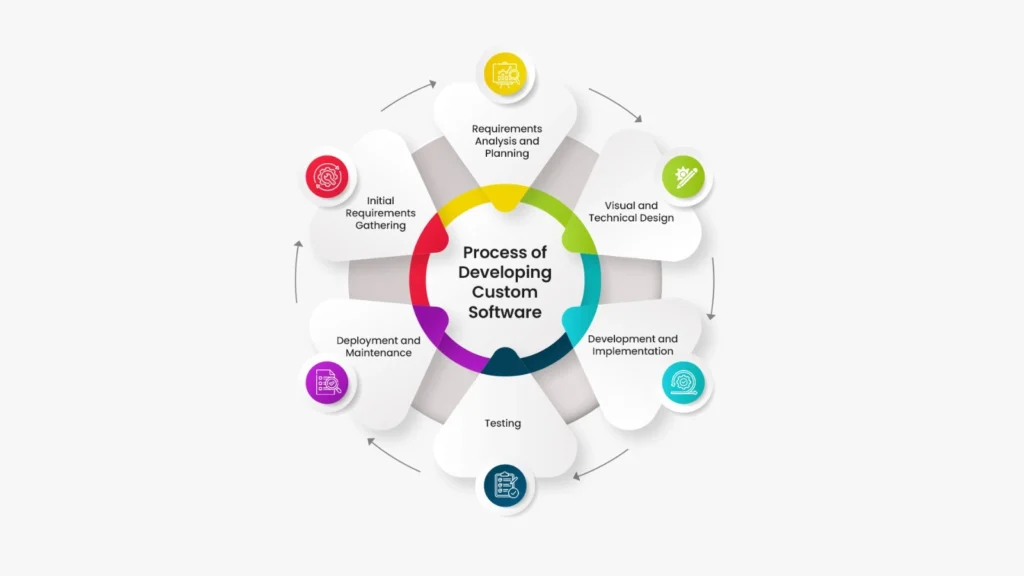
There are multiple custom software development models that developers and companies use to develop high-performing products. Among them, Agile is the most high-preferred solution. Different software development procedures have separate approaches to make sure that product delivery happens successfully. Regardless of the process, some stages are common in all of them. Let’s find out.
Planning Stage
The first stage involves collating the exact requirements of the business for further analysis. This sets up the base of a successful software development process. It will involve evaluating the needs of the client and understanding the goals, unique preferences and expectations.
Top activities included are:
- Understand the scope: Make sure to find out what the project needs for your team to do. This will include finding out how the software will resolve the needs of the brand.
- Determine client requirements: The development and business team will sit along with the clients to get a clear idea of the brand goals, challenges and how the software will help.
- Chalk out project plan: The team will figure out an elaborate plan along with crucial details resource planning, timeline fixing and others.
- Pick a methodology: Once they fix all the above factors, the team will see which is the best tech stack for the project
Once the team has all the necessary details in hand, they will proceed to analyze and create an execution plan. This is a crucial step in software development and will allow the developers to meet client needs successfully. A concrete plan is developed that will align with the client’s vision and objective.
For clarity and mutual understanding, the team will document all requirements in SRS or a Software Requirements Specification document, which is a blueprint of design and development. The client and the hired development team will then jointly check and approve this document to proceed to the next step of production.
The requirement stage is a key step before the actual task execution kicks in. If done accurately, it will ensure that the end product caters to all necessary needs of the client.
Technical and Visual Design
As the software development firm understands the exact requirements, they will need to figure out how to build it. Since each software will need a particular approach, the teams will need to design a system architecture. For this, the developers will have to refer to the internal design of SRS document and consider all parameters. While designing the internal design, they can also take up the external design.
In this stage, they will also develop wireframes, database designs, prototypes and user stories.
Development
The following stage is highly essential and this is where the design is put into reality. This phase is the most resource-intensive and time-consuming since it requires coding.
Major activities include:
- Coding: Developers will need to write codes on the basis of the SRS and the approved design. Coding will be a smooth process if the previous stages are smooth.
- Compliance with development models: The development approach will depend on the model adopted. Agile is the most popular methodology which involves Scrum meetings with all team members for daily updates.
- Testing: Testing should go hand-in-hand with development. It will assistin ensuring that the product meets all quality standards. Testing will include security vulnerability detection and rectifying underlying issues.
- Project management: Every methodology comes with its own strengths and weaknesses:
-
- Agile project management: Comes with a flexible and adaptable approach helping in making changes smoothly and iterations.
- Kanban project management: This is an Agile method focusing on visualizing work and improving operations and workflow.
- Waterfall project management: It is majorly a sequential method where one phase needs to be completed before going to the next.
- Lean project management: This is similar to Kanban which focuses on limiting waste, and streamlining operations.
- Scrum project management: It is a subset of Agile where the entire development is split into small groups working on incremental updates.
- Six sigma project management: This is a data-driven approach aimed at attaining top quality while having minimum defects.
The coding and development stage is extremely essential to bring the final product to life while also making sure it meets the client’s needs. With the combination of testing, best coding practices and the most appropriate project management methodology, teams can create high-performing custom software.
Testing
Once the development phase is complete, its time for testing the final product. The testing phase is crucial to identify any underlying issues, defects or bugs that would impact the user experience or performance. This phase involves functional and non-functional testing and include:
- Installing localized machines
- Text input
- Device compatibilty
- Core application functions
If an underlying issue comes up, the team needs to fix it and then test again. It will go on until the product meets all quality standards. Also, both the development team and the client team need to test the product.
These are the various types of testing techniques that a team should implement.
Functional testing
Functional testing focuses on testing software functionalities. Here, one needs to test every functionality of the application until you get the best result. You can conduct this test both with automation tools as well as manually. There are various types of functional testing such as:
- Smoke testing
- Integration testing
- Unit testing
- Acceptance testing
- End-to-end testing
- Whitebox testing
- Interface testing
- Regression testing
- Black box testing
Non-functional testing
This type of testing involves checking the non-functional parts of the software, which generally includes security, usability, performance and reliability. These tests will take place only after the functional test:
- Load testing
- Usability testing
- Performance testing
- Efficiency testing
- Failover testing
- Reliability testing
- Security testing
- Endurance testing
- Localization testing
Deployment and post-launch maintenance
Launching the final software product will come after rigorous testing of both functional and non-functional aspects of the product. This is, however, not the final stage of software development. The software development process isn’t actually complete with product release. After the team releases the product, it is common to expect issues to surface. Some issues will demand immediate fixes, while some might be marked for rectification later on.
Now, for software deployment, you have to consider whether you want cloud-based deployment or on-premise.
When you are deploying software on-premise, it means that the final product will be located on the server of the company and will be safeguarded by the internal firewall. Previously, this was the most used method of integrating a software application into the codebase of a company.
But, deploying a software application on the cloud infrastructure will need building a virtual environment. For cloud-based deployment, companies need to leverage and integrate platforms such as Google Cloud, AWS, Azure and other tools for smooth and hassle-free software deployment.
One of the most significant advantages of custom software development is that the partnering agency takes care of the application even after product release and deployment. Maintenance and ongoing support services will include security patches, bug fixes, upgrades and adding more functionality.
Boost your business growth with customized solutions
Boost your growth and leave your competitors behind. With Digital Aptech, get custom software development services that resonate with your brand.
Major factors to know for custom software development
When developing custom software, one needs to keep multiple factors in mind to make sure that the project is successful and effective at the same time. Here are the major factors that play pivotal role in making custom software effective and useful:
1. In-house team vs outsourced team:
- Outsourcing: Outsourcing is a cost-effective and budget-friendly option. It helpsto get domain-specific expertise and easy access to the latest tech stack and skills.
- In-house development: This process of development is fit for enterprises that already have a skilled in-house team. However, they may need an expert team of resources who can meet the project deadline.
2. Choosing between build vs. buy:
- TOC or Cost of Ownership: Consider the long-term expense of developing a custom solution as compared to generic solutions.
- Competitive advantage: Find out if the custom software will help in offering a competitive advantage.
- Uniqueness of the problem: Evaluate if the problem is common or unique only for your brand. If it is common, see whether a generic solution would be enough.
- API Integrations: Assess if off-the-shelf solutions can provide the API integrations that you will require.
- Scalability factor: Find out if the off-the-shelf solutions will match your scalability needs in the future.
- Requirements of features: See if the generic software solutions will be able to align with your specific brand requirements.
3. Finding the suitable methodology:
- Determine which methodology would be the most suitable for your project among Agile, Waterfall and Lean and weigh the pros and cons
- Agile is the most popular method with its iterative approach and is being adopted rapidly.
4. The user experience:
- Adhere to the best UI/UX design standards and practices to make sure that the software solution offers the most efficient and immersive user experience.
- The software design has to be focused on user-friendliness and navigation as well as usability.
To summarize, to develop custom software for specific requirements, businesses need to weigh in major factors which include the choice of in-house or outsourced development, the option between building or buying and choosing between the methodology.
Which errors to avoid for building custom solutions?
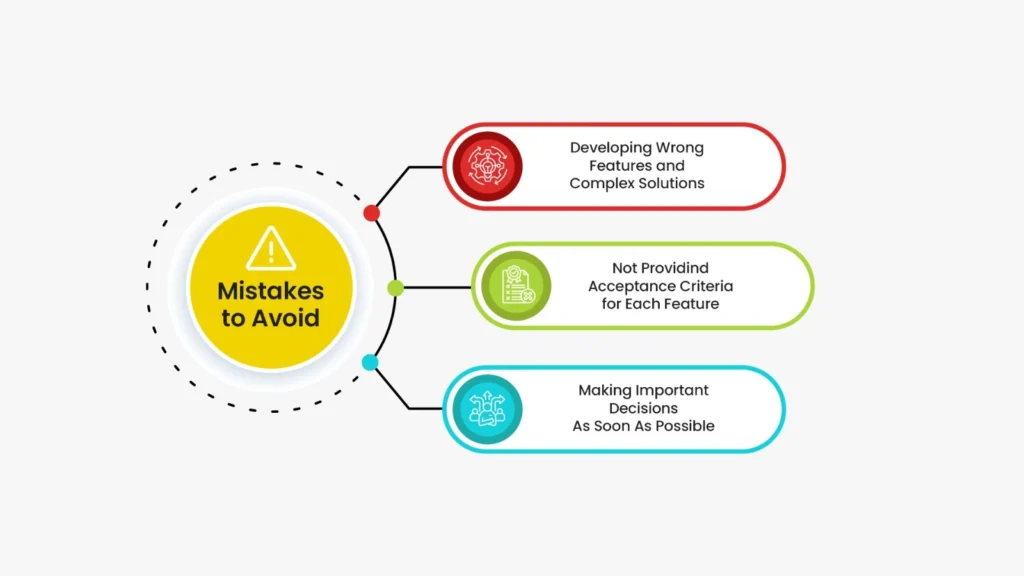
To ensure the custom software is effective and useful, make sure to know about the most common mistakes that can slow down the project. When you have a clear understanding of the potential pitfalls, you can take measures to avoid them and get the desired outcome. These are the mistakes to avoid at all cost:
- Lack of testing and QA: Make sure to make arrangements that are enough testing of the final product. This will help to find out the flaws and underlying issues. Lack of testing will only make the product poor.
- Delayed decision-making: Failing to make important decisions on time will impact the entire development cycle and time-to-market. Ensure to make informed decisions at the correct time to manage project flow smoothly.
- Unclear goals: No clarity or understanding of the project goal affects the overall outcome of the software. Make sure to understand the project scope and key requirements right from the beginning.
- No feature acceptance criteria: In the absence of clear feature acceptance criteria, it may create unnecessary confusion and ambiguity. Ensure to have explicit acceptance criteria for every feature for ensuring appropriate outcomes.
- Insufficient training and documentation: Lack of appropriate documentation could be the cause of confusion. So, it is essential to design detailed and elaborate documentation that would help in using the software.
- Developing incorrect features: Try not to waste time and resources on creating unnecessary features or complex functions that could take a toll on the user experience.
Top practices for custom software development
Developing custom software solutions needs a specific approach that will make sure that the software solution meets all requirements. These are some of the best practices that businesses need to follow to ensure smooth project development:
- Research all available options: Before you finalize on custom solutions, make sure that there are no off-the-shelf solutions that can meet your brand needs.
- Make a cost-benefit analysis: Compare the costs with the benefits of the custom software development to find out if it is economically feasible.
- Define your goals: Assess the problems that the software is going to solve and how it will offer genuine yet unique solutions.
- Find a suitable development partner: Check the reviews, testimonials and case studies to find a suitable software partner.
- Opt for staff augmentation: If you already have an in-house team but need to access specific talent and skill, you can consider staff augmentation.
- Documenting the entire process: Make sure to have a thorough documentation of the development cycles and phases for future reference.
- Choose the outsourcing model: Find and assess the most suitable outsourcing model for your project, like offshoring, nearshoring or homeshoring.
- Pick the latest tech stack: Go for a technology stack and framework that can support scalability.
- Develop a mobile app: If it is possible you can choose to develop a mobile app version of the custom software to cater to the mobile app user group.
- Address all training needs: Make sure that your users get all the necessary training to use the application smoothly.
- Develop an MVP: You can consider designing an MVP before going to launch a full-fledged product to understand the feedback.
- Use of Proof-of-Contact: Consider implementing PoC to validate the concept before going for full-scale development.
When you stick to these best practices, the software development project becomes easier, simpler, cost-effective and meets all your brand needs.
How to choose the best custom software development company?
Designing a tailor-made software application will need an approach that involves attention to detail. When looking for a custom software development partner, businesses need to look for partners that can understand the exact requirements, and deliver the project on time without compromising quality. Check out how individuals and businesses can find the most suitable partner for the best outcomes:
Expertise and skill:
- Technology expertise: The partner should come with experience and expertise in all relevant and necessary technologies, frameworks and programming languages. Find the portfolio and case studies to check if they have worked on similar projects.
- Communication: Make sure that the team has the necessary communication skills to be able to explain complicated technological concepts smoothly and keep the project flow efficiently.
- Project Management: The team will have the ability to leverage project methodologies for on-time delivery while maintaining quality.
Methodology used:
- Development methodology: Agile is one of the most popular development methodologies in the market currently. It allows superior flexibility and an iterative approach.
- Objectives: The software development partner should focus on evaluating your brand goals and requirements to deliver the results that you need.
- QA testing: The software partner should prioritize and have a rigorous quality assurance program in place to ensure the efficient removal of underlying bugs and issues before release.
Other factors:
- Pricing: Make sure that the pricing structure is transparent, and affordable and the contract allows you to have your own IP rights.
- Security: The company should have stringent security protocols and measures in place so that the your data is secure.
- Scalability: The software partner should develop a software that will help in scaling up operations.
- Company culture: A software partner with a transparent and supportive culture is ideal for long-term development.
- Client testimonials: Get an insight on the past experience of the company as you check the testimonials, case studies and portfolio.
- Engagement models: Choose between hourly billing, project milestone model or fixed price model as per your budget requirements.
- Ongoing support: Find companies that offer ongoing support and maintenance after product launch.
- Company structure: If you have a small project in mind, then a small agile team would suffice. However, large teams can offer diverse skills and technologies.
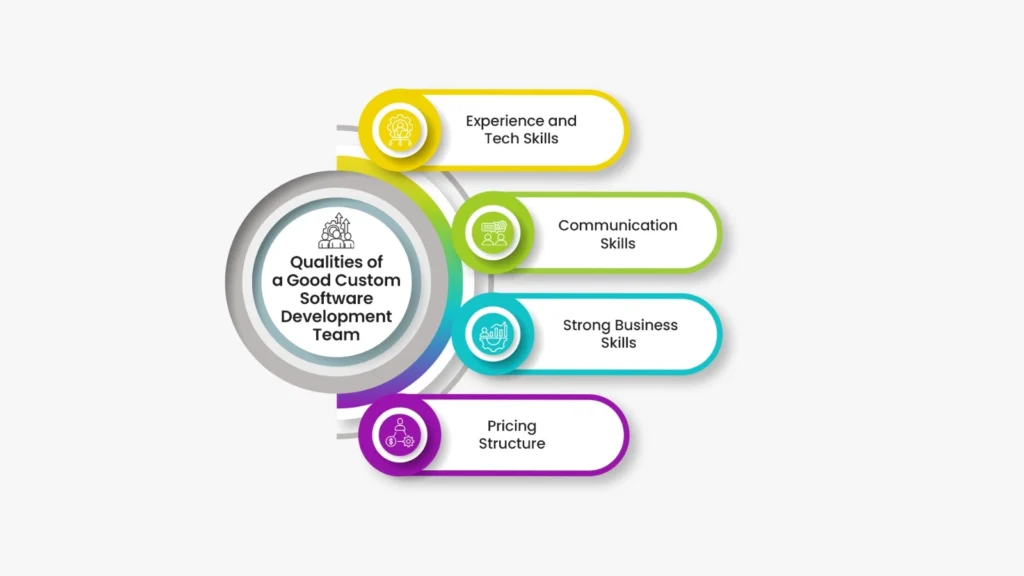
Why choose Digital Aptech as your custom software development partner?
We at Digital Aptech are experts at providing custom software development solutions to brands across the globe. Equipped with proficiency across latest technologies like blockchain, AI, IoT etc, we can easily meet all your requirements. Let us look into why Digital Aptech is the best for you:
Experience access domains and technologies
We are a team of professionals who have expertise in varied technologies, using which, we have delivered over 1700 projects successfully.
Our knack to provide digital transformation across the globe has resulted in extremely happy clients who have given us glowing reviews across platforms like google, clutch, G2, Trustpilot and more. With this our online rating is at a stellar 4.8 out of 5.
Agile Development
We always choose agile methodology for our development process. Using this, we can make continuous changes thanks to its flexibility. With Agile Methodology, your solution can evolve easily.
Comprehensive documentation
For proper software development, documentation is key, offering traceability to all stakeholders. We implement an extensive documentation process including user manuals, roadmaps, stagewise planning and more.
Regular testing
With regular sprints, we ensure top code quality. With the completion of every stage, we perform extensive testing to ensure your solution is free of bugs and is secure.
Ensuring code uniformity
We ensure that coding style across the platform is consistent. We have clear instructions and processes the team follows and we also use various tools to ensure the same.
Pricing and delivery timeline estimation
Pricing and project delivery timeline are one of the most crucial factors of choosing the right development partner. We offer transparent costing with breakdown so you can choose accordingly and know your money’s worth.
Quality assurance and review
We have a robust quality assurance team who ensure you get nothing but the best. They run multiple thorough checking and review sessions to ensure platform effectiveness.
Support and Maintenance
Several experts are dedicated to ensure that your software is built exactly the way you need. At Digital Aptech, you get an extremely smooth and hassle free development experience. We also ensure regular communication so you stay updated. We go beyond the development process, providing active support and maintenance post delivery. When you choose Digital Aptech, you also choose to say goodbye to technical hassles and get to focus on growth.
With these commitments, we at Digital Aptech curate custom software that are built for success.
Final Thoughts
Custom software development is crucial for businesses who want to stay ahead of their game. With uniquely created custom solutions, we can easily overcome hurdles, while implementing robust security. Custom solutions also enable rapid adaptability and scalability as the business grows.
Now, to ensure your custom software is optimally built, you need to choose your development partner very carefully. Choose a partner which has immense experience in this sector while also having a diverse client portfolio. Choosing a company with experience can speed up your growth process.
Make sure that you have expressed your requirement clearly to the development company. This sets the tone right and offers clarity right from the planning stage.
Regardless of an in-house set up or outsourcing the development, elements like briefing, onboarding, brainstorming and protecting the project is crucial. This is why we sign an NDA with all our clients offering optimum data protection.
This document should serve you as a guide to understanding custom software development. With the information presented here, you can take informed calls towards business growth.
So, now it all comes down to you, are you set to elevate your brand with custom built solutions? Then Digital Aptech is the best choice to meet and go beyond your expectations.


























